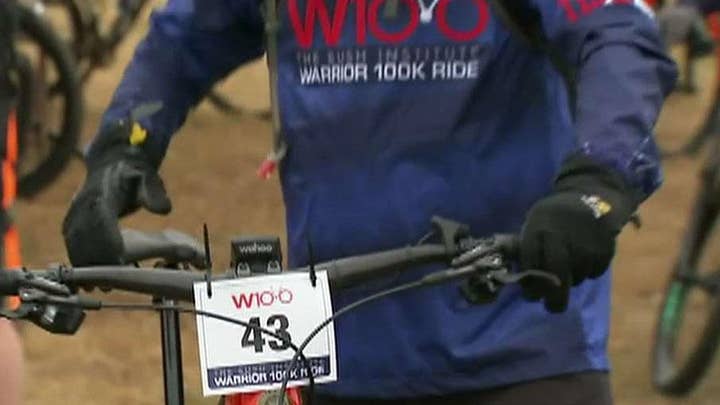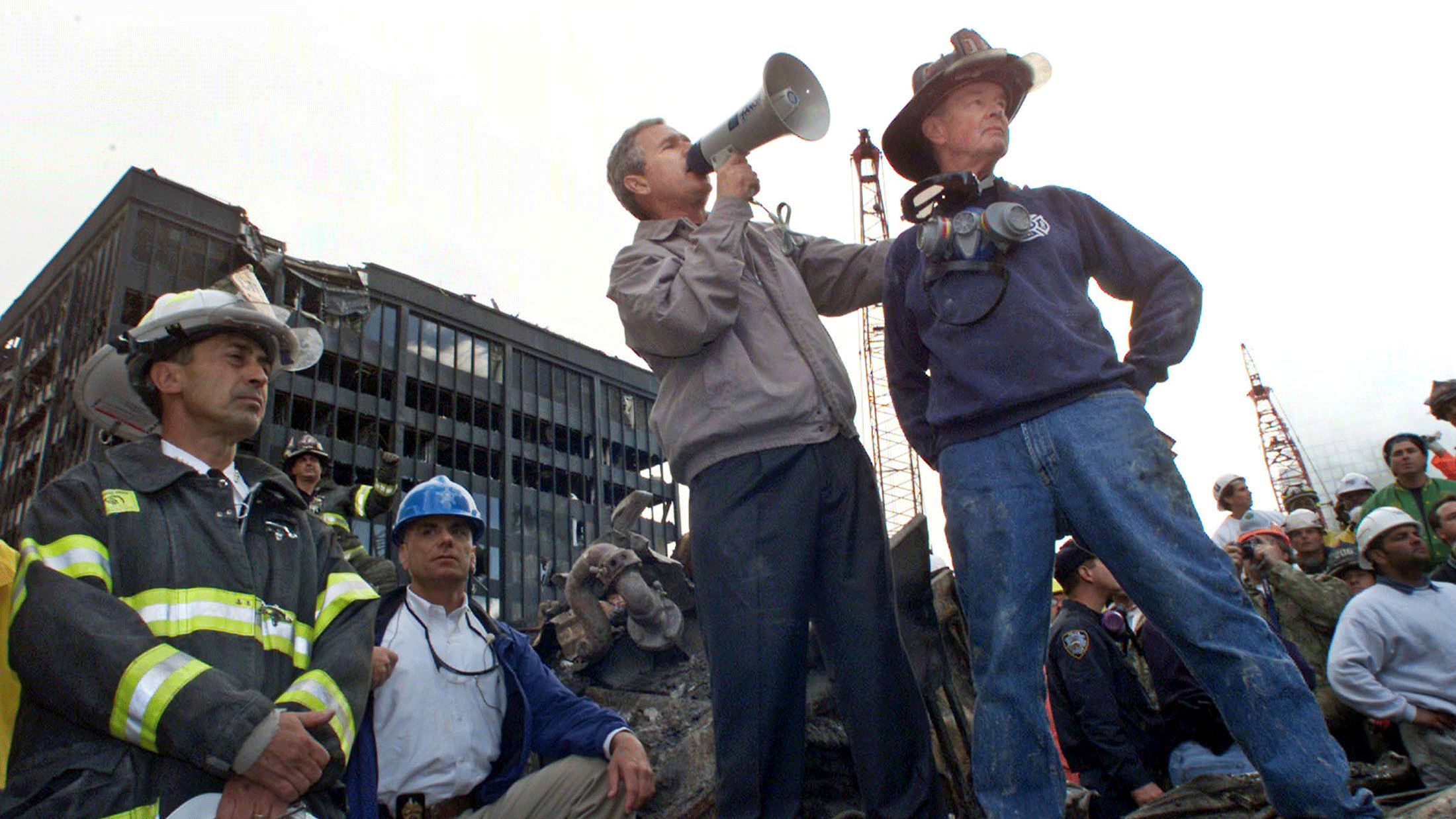Dr. Marc Siegel: George W. Bush and 9/11 – a profile in strength, leadership

Coming Soon: ‘I Can Hear You: President Bush at Ground Zero with Martha MacCallum’
After Sept. 11, 2001, when President George W. Bush rallied the country from the top of that demolished fire truck with his megaphone and started a 20-year campaign in Afghanistan with the express purpose of seeking out the terrorists over there before they came over here to attack us, I criticized him for fear mongering, for using the politics of fear to bring the country into perpetual war. In fact, I based an entire chapter in my book “False Alarm: The Truth about the Epidemic of Fear” on this notion.
I was wrong, as the abrupt departure from Afghanistan is showing us. We feel vulnerable again behind a weak leader, vulnerable to mushrooming groups of terrorists, whereas Bush was strong and we felt protected by our military after that fateful day in late 2001.
Over the years, Bush showed me this strength in unexpected ways when he allowed me to ride along with the wounded war fighters over tough terrain (initially in Palo Duro Canyon in the 105 degree heat and later on his ranch in Crawford, Texas) from 2012 to 2019 during the Warrior 100K Mountain Bike rides. His strength and toughness were always personal, one on one with his vets.
He rode up front on the trails because he was a very good rider, not because anyone was pandering. And no one was in awe of him, he was one of them.
Though I have interviewed him multiple times and come to know him for the tough yet gentle leader he was, it was never about him. It was always about the vets, about helping them overcome all hurdles (physical and metaphysical) from the war to return to the new normal.
He was greatly concerned about the invisible wounds of war, post traumatic stress and traumatic brain injury, that are just as afflicting as any physical wounds. And he treated these heroes with respect, as equals, as though they had lost a visible limb.
They shared this regard among themselves, and it lifted them up, whether they were active duty or reserve or retired. If one fell, others helped him or her back on the bike, indeed, “getting back on the bike” was more than just metaphorical.
It was always about the vets, about helping them overcome all hurdles (physical and metaphysical) from the war to return to the new normal.
When Bush’s book “Portraits of Courage: A Commander in Chief’s Tribute to America’s Warriors” came out, I interviewed several of the vets in the George W. Bush Presidential Library and Museum, where the paintings were on display.
One portrait, of Master Sgt. Roque Urena and his wife Marlene, struck me the most. Roque was a medic in the Air Force for 25 years and served in Iraq in 2004, treating more than 3,500 injuries as a shift leader in the ER.
He came home severely depressed, and the painting centers on his hand on his wife’s shoulder as she smiles at him and comforts him. Her love, and later the bike ride and camaraderie with his fellow wounded war fighters, has helped him to heal.
But Marlene told me a special story that few knew of, about a man who came to visit with her and Roque, an unassuming man who hugged them and shared tears, with no cameras, no microphone, no photo op. That man was President George W. Bush.
On Sept. 11, 2021, there will be a 20-year anniversary commemoration down at the World Trade Center site. It will feel emptier now because Afghanistan is a lost war, haunted not just by the memory of those we lost both here in New York City and on the battlefield there, but also those we may still lose in the years to come at the hands of emerging terrorists.
Bush is shown with retired firefighter Bob Beckwith (R) at the scene of the World Trade Center disaster on September 14, 2001.
(REUTERS/Win McNamee-Files)
As far as I am concerned, there is only one president who deserves to be invited, only one who will fit in seamlessly with the men and women who were and still are under his command.
Source: Read Full Article




